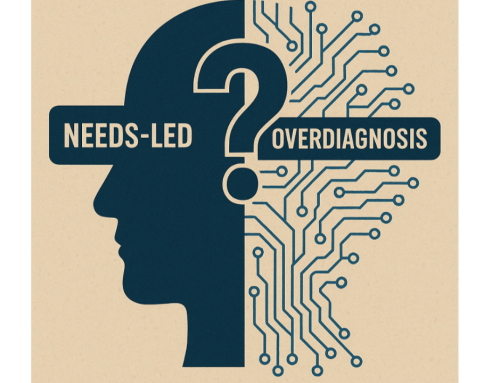 As I read Nick Ransom’s excellent piece in the Guardian about the language used to describe autistic people, I not only sat there reading, my head nodding in agreement, but realised these words echoed my own language from the last few years.
As I read Nick Ransom’s excellent piece in the Guardian about the language used to describe autistic people, I not only sat there reading, my head nodding in agreement, but realised these words echoed my own language from the last few years.
In his article, Nick highlights how certain phrases have obscured autism strengths and pathologised qualities that simply make us different – not necessarily disabled.
While I don’t speak for people with autism, here is a general guide on how to use respectful and inclusive language when chatting to friends, family, and other autistic individuals.
How should we talk about autistic people in an inclusive way?
Language choices around autism are continually evolving, and there are differing schools of thought on the topic.
Generally, you should use language that is positive: after all, being autistic is a core part of who we are.
Some advocates and members of the autistic community prefer an ‘identity-first’ approach.
Examples of identity-first language include autistic person / autistic people / autistic adult / autistic child.
Many feel that this type of language reaffirms their identity as an autistic person, helping to combat traditionally negative stereotypes about the label and encourage pride in who they are.
Others opt for a ‘person-first’ approach, such as person / people / adults / children with autism.
While person-first language tends to be more common in professional and academic settings, there has been widespread debate on how person-first language separates the person from their autism.
Ultimately, it’s up to the individual you are addressing. What one autistic person prefers doesn’t necessarily mean all autistic people have the same preferences.
If you’re wondering which phrases should absolutely be avoided, steer clear from phrases like ‘suffers from autism’ or ‘she is an autistic’, which imply that there is something wrong or abnormal about the person.
It’s also worth mentioning that the appropriate context for using ‘autism spectrum disorder’ is when we’re talking about a diagnosis, as explained on raisingchildren.net.au.
Outside of that, we don’t want to talk about autism as if it’s something bad that needs to be cured or treated.
If you’re not sure, just ask!
It’s important to remember that there’s no single ‘correct’ label or words when talking about autism; but as usual, try to approach every conversation with respect and open-mindedness.
If you’re unsure about what to say, the best thing to do is to ask the person you are talking to what their preferences are.




